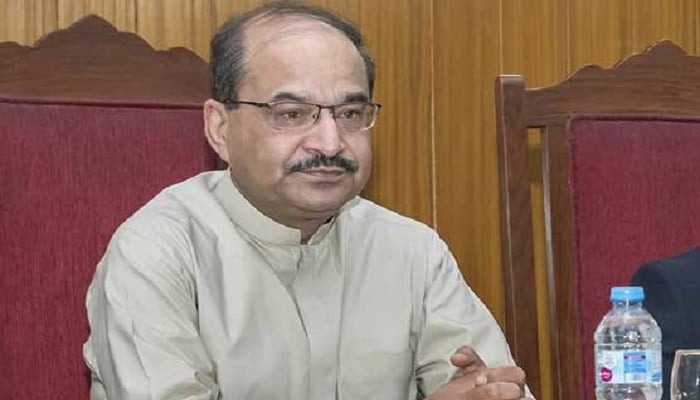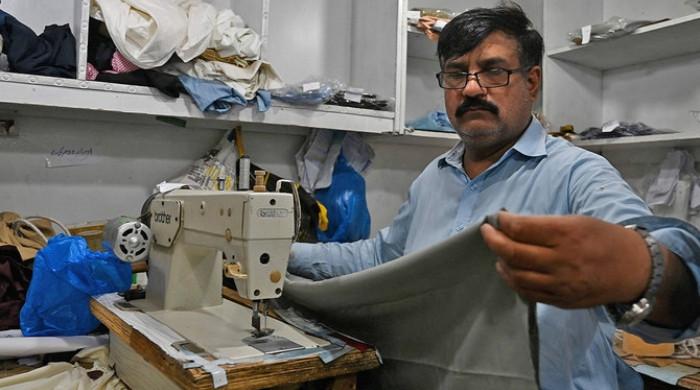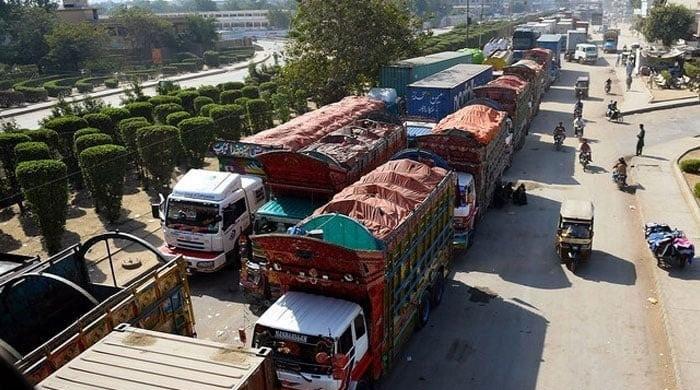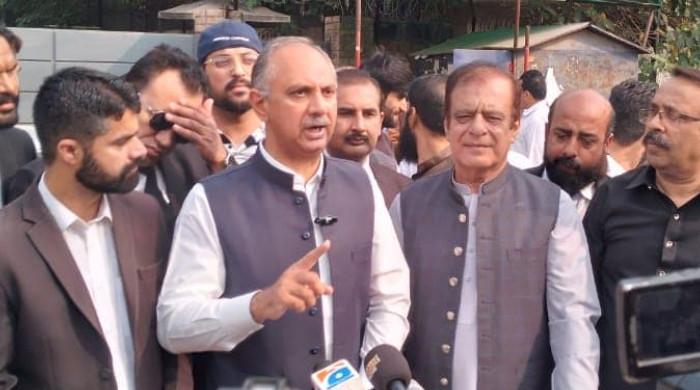Former Punjab food secretary tears into inquiry report on flour crisis, terms it attempt to deceive PM Imran
Naseem Sadiq says inquiry report is a deliberate attempt to confuse flour crisis with wheat procurement
April 11, 2020

ISLAMABAD: Former food secretary Punjab Naseem Sadiq on Saturday said that the inquiry report into the shortages of flour in the country was being deliberately confused with crisis of wheat to provide leeway to certain 'mafias' so they could avoid blame for the whole episode.
Sugar and wheat shortages in the country at the turn of the year had led to severe criticism of the governance of the incumbent federal government. Prime Minister Imran Khan had earlier this year ordered an inquiry into the shortages, promising to hold the culprits to account.
Earlier this month, a preliminary report into the shortages had been leaked to the media. Sadiq was subsequently removed from his post, and was commenting on the contents of the leaked preliminary findings. The detailed report into the shortages is expected to be released by April 24.
Also read: Here is everything you need to know about the laws governing public inquiry commissions
'Members of inquiry committee hold personal grudges against me'
Sadiq termed the preliminary crisis report a proverbial fable of Greek philosopher Aesop. In a detailed response submitted to Chief Secretary Punjab on April 8, he claimed that an abortive attempt had been made to relate the flour crisis to wheat procurement.
Sadiq further termed the report a backlash in the form of prejudice that needed to be investigated in a competent law forum. "Two members of the inquiry committee, including Deputy Director General Intelligence Bureau (IB) Mubarak Zeb, had a personal grudge against me," he said.
Sadiq alleged that the inquiry committee was diverting attention away from a tangible crime by creating a smoke screen for the benefit of a 'mafia' involved in the flour crisis. "If allowed to go scot free, at this juncture, it shall again resurface to play havoc," he claimed.
Also read: Key takeaways from the probe into sugar and wheat shortages
“This factually incorrect information has been intentionally inserted in the report to deceive the Prime Minister of Pakistan, by deliberately building a false case of some imaginary failure of Punjab government in wheat procurement," he added.
'Riddled with incompetency, inconsistency'
According to Sadiq, the preliminary report is riddled with incompetency, inconsistency, and a vocally misleading paradigm. "It appears that the report prima facie was prepared by someone else and signed by the committee members without bothering to read it," he claimed.
"Except to my extent where some personal attention was given. Had that not been the case, they would have noticed that their investigations and major premise drawn were regarding the Wheat Procurement Campaign 2019-20 and not 2018-19," Sadiq revealed.
Also read: Tareen questions criteria for audit of his nine sugar mills
The attempt to mislead the premier was criminally cognizable, he added. "I shall prove the same hereinafter with undeniable documentary evidence, additionally corroborated from the glaring contradictions, popped up throughout the report itself," Sadiq claimed.
“The major allegation against me is that I delayed wheat procurement for 22 days that resulted in failure to procure wheat as per the target, during my posting as Secretary Food Punjab. Quite interestingly, wheat procurement campaign had started eight days before my joining," he said.
"So, how can I be held responsible for delaying the campaign for 22 days even before my becoming Secretary Food Punjab? No delay otherwise occurred at all in wheat procurement in the Punjab and this factually incorrect information has been intentionally inserted in the report."
'Report aims to pull attention away from flour crisis'
Sadiq further said that the trajectory in the report regarding deflections, diversions, and contortions was made to pull attention away from the flour crisis and pin blame on some imaginary failure of wheat procurement campaign in Punjab.
“The next allegation against the whole wheat procurement campaign 2019-20 in the Punjab is that a tacit approval was given to poultry feed mills to procure wheat. Again, the said permission, rather sale by the Food Department Punjab, was done much before my joining," he said.
"Such an allegation is totally misplaced and depicts lack of knowledge and understanding by the Committee Members as they seemed to have not gone through the approved Wheat Procurement Policy 2019-20. I did neither prepared the said policy nor could I alter it," he claimed.
Also read: Sugar, wheat crisis: PM Imran vows action against profiteers after forensic report
"Only Cabinet was competent to do that. The Cabinet, however, gave approval for adopting an open procurement regime by removing the bardana etc. ceiling, which itself nullifies another allegation quoted in the said report," Sadiq added.
The former food secretary for Punjab said that the crisis of flour was deliberately confused with wheat to provide leeway to the mafia to go scot free, as the crisis was that of the availability of flour, and not of the wheat at the doorsteps of the Food Department Punjab.
"This is further augmented by the fact that the Food Department Punjab started releasing wheat right from August 2019, which was followed by continuous unprecedented releases, possible obviously if they had enough wheat stock with them," he noted.
"The quota of flour mills was also not in proportion to the populations of those respective districts and here the punch line lies. Instead of tracing the audit trail of a crime purported in the broad day light, the committee conveniently contended and confined itself to an area which proved a source of strategic strength," he alleged.











